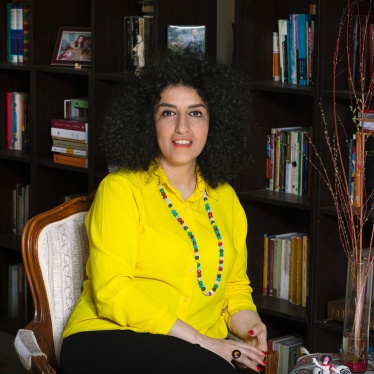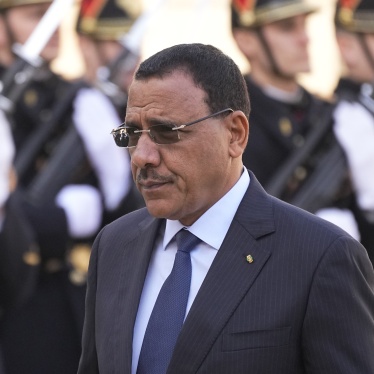(Beirut) – A Qatari court’s life sentence for the poet Muhammad Ibn al-Dheeb al-Ajami after a grossly unfair trial flagrantly violates the right to free expression. Putting Ibn al-Deeb on trial badly undermined Qatar's efforts to present itself as a free speech haven.
The court’s two-line written judgment on November 29, 2012, makes no reference to any law that Ibn al-Dheeb is alleged to have broken, although the prosecution claimed during the five-minute hearing that he had called for a revolution in Qatar. Ibn al-Dheeb was not in court and according to his lawyer the judge prevented him from entering any defense or responding to the prosecution’s claims. In a January 2011 poem titled “Tunisian Jasmine,” Ibn al-Dheeb expressed support for the uprising there. He previously had recited poems that included passages disparaging senior members of Qatar’s ruling family.
“Qatar, after all its posturing as a supporter of freedom, turns out to be determined to keep its citizens quiet,” said Joe Stork, deputy Middle East director at Human Rights Watch. “Ibn al-Dheeb’s alleged mockery of Qatar’s rulers can hardly compare to the mockery this judgment makes of the country’s posture as a regional center for media freedom.”
Ibn al-Dheeb has been in detention since his arrest on November 17, 2011. Qatar’s judiciary reportedly charged him two days later with “inciting the overthrow of the ruling regime,” but it is unclear on what basis the court convicted him.
In June 2010, Ibn al-Dheeb began a poetic “duel” with another Qatari poet, Khalil al-Shabrami, in which they addressed each other in poems – often performed in front of small private audiences. They recorded the poems and uploaded them to the internet. In some of these poems, over the course of approximately one year, Ibn al-Dheeb disparaged members of the ruling Al Thani family, including the emir, Sheikh Hamad Al Thani, and his wife, Sheikha Moza.
Article 134 of Qatar’s penal code provides for up to five years in jail for “anyone who challenges by any public means the exercise by the Emir of his rights or authorities or criticizes him.” The life sentence that the court imposed on Ibn al-Dheeb indicates, however, that the court convicted him of a more serious offense, outlined in article 130 of the penal code, of trying “to overthrow the regime of the country.” Article 130 provides for the death penalty. The basis for charging Ibn al-Dheeb with this offense is not clear. In his January 2011 poem, Ibn al-Dheeb simply expressed support for the Tunisian popular uprising – “We are all Tunisia in the face of repressive coteries,” – and criticized Arab governments in general as “indiscriminate thieves.”
Article 47 of Qatar’s constitution guarantees freedom of expression and opinion “in accordance with the conditions and circumstances set forth in the law,” and Qatar also pledged to respect the right to free expression under article 32 of the Arab Charter on Human Rights, to which it is a party.
Sheikh Hamad set up the Doha-based Al Jazeera news channel in 1996. It has provided extensive coverage of popular uprisings in countries like Tunisia, Libya, and Syria. But it rarely broadcasts critical articles about Qatar itself, and its Arabic channel provided has little coverage of pro-democracy demonstrations in neighboring Bahrain.
A draft media law approved by the State Cabinet in June 2012 would prohibit publishing or broadcasting information that would “throw relations between the state and the Arab and friendly states into confusion” or “abuse the regime or offend the ruling family or cause serious harm to the national or higher interests of the state.” Violators would face stiff financial penalties of up to 1 million Qatari Riyals (US$275,000). At this writing the emir had not yet ratified the draft law.
“Ibn al-Dheeb’s conviction is evidence that Qatar’s rulers regard the country’s constitution and treaty obligations as meaningless words,” Stork said.








